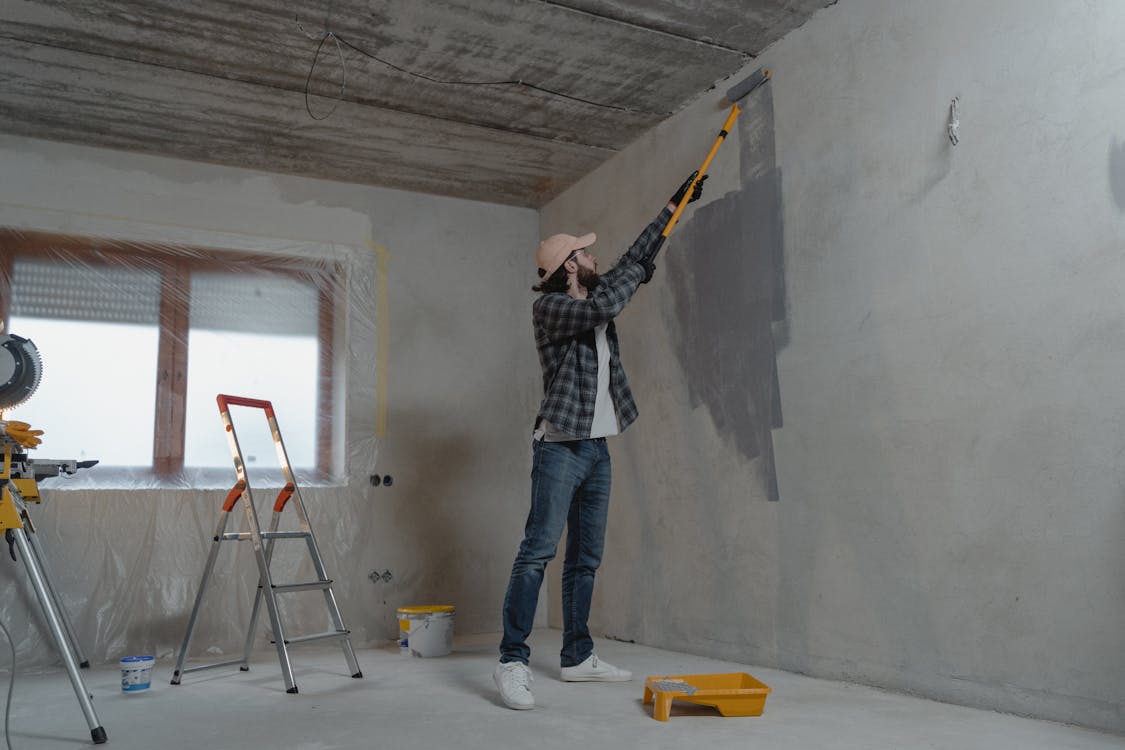
Table of Contents
Home renovation is an exciting and transformative process that allows homeowners to breathe new life into their living spaces. Whether you’re looking to update a single room or embark on a full-scale renovation project, transforming your space can have a profound impact on your overall quality of life. In this comprehensive guide, we will explore the various aspects of home renovation, from planning and budgeting to selecting materials and hiring professionals. By the end, you will be armed with the knowledge and inspiration to embark on your own home renovation journey and create the space of your dreams.
Section 1: Planning and Research
1.1 Assessing Your Needs and Goals:
Before diving into a home renovation project, it is crucial to evaluate your current living situation and identify the areas that require improvement. Consider your lifestyle, family dynamics, and future needs to ensure that you create a space that is not only aesthetically pleasing but also functional.
1.2 Setting a Realistic Budget:
Establishing a budget is a vital step in any renovation project. Determine how much you can afford and allocate funds to different areas such as materials, labor, and unexpected expenses. Research the costs associated with your desired renovations to ensure your budget aligns with your goals.
1.3 Gathering Inspiration:
Browse through magazines, websites, and social media platforms to gather inspiration for your renovation project. Create mood boards or Pinterest boards to visualize your dream space and identify common themes or design elements that resonate with you.
Section 2: Design and Conceptualization
2.1 Working with Design Professionals:
Consider hiring an interior designer or architect to assist you in conceptualizing your renovation project. Professionals can provide valuable insights, create detailed plans, and help you navigate through the myriad of design choices available.
2.2 Understanding Architectural Elements:
Familiarize yourself with the architectural elements of your home, such as floor plans, load-bearing walls, and electrical systems. This knowledge will help you make informed decisions and avoid costly mistakes during the renovation process.
2.3 Selecting a Design Style:
Choose a design style that reflects your personality and complements your home’s architecture. Whether you prefer minimalist, rustic, contemporary, or eclectic aesthetics, selecting a consistent design style will ensure a cohesive and harmonious space.
Section 3: Execution and Implementation
3.1 Hiring Qualified Professionals:
If your renovation project requires structural changes or complex installations, it is advisable to hire licensed contractors, electricians, plumbers, and other professionals. Research and interview potential candidates to ensure they have the necessary expertise and a track record of successful projects.
3.2 Acquiring Permits and Approvals:
Before commencing any construction work, check with local authorities to determine if permits or approvals are needed. Failure to obtain the necessary permissions can result in legal complications and delays.
3.3 Selecting Quality Materials:
Investing in high-quality materials is essential for long-lasting renovations. Consider factors such as durability, maintenance requirements, and eco-friendliness when choosing materials for flooring, countertops, cabinetry, and other components.
Section 4: Home Renovation Tips and Tricks
4.1 Maximizing Space:
Optimize your living area by utilizing smart storage solutions, removing unnecessary walls, and creating multifunctional spaces. Clever design choices can significantly enhance the functionality and visual appeal of your home.
4.2 Incorporating Natural Light:
Natural light has a transformative effect on any space. Consider adding larger windows, skylights, or strategically placing mirrors to maximize the amount of natural light entering your home. This simple technique can make your space feel more open, inviting, and energizing.
4.3 Embracing Sustainable Practices:
In today’s environmentally conscious world, incorporating sustainable practices into your renovation project is both responsible and cost-effective. Consider installing energy-efficient appliances, utilizing eco-friendly materials, and implementing water-saving fixtures to reduce your ecological footprint.
Conclusion:
Home renovation is a powerful tool that can transform your living environment into a space that aligns with your lifestyle and aesthetic preferences. By following the steps outlined in this comprehensive guide, you can embark on a successful renovation journey that not only enhances the functionality and visual appeal of your home but also improves your overall quality of life. Remember, the key to a successful renovation lies in careful planning, thorough research, and collaboration with professionals who can bring your vision to life. So go ahead, transform your space, and enjoy the countless benefits of a well-designed and renovated home.





More Stories
The Secret Weapon of Curb Appeal: Unveiling the Power of Window Screens
The Benefits of Upgrading Your Home’s Windows: A Comprehensive Guide
Revitalizing Your Home: The Benefits of Periodic Remodeling